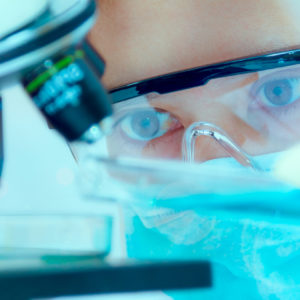In the early 1970s, America launched a war against cancer. A half-century later, we have made strides, to be sure. Fewer people are smoking. Personalized medicine and advances in treatments are saving lives. A cancer diagnosis is no longer tantamount to a death sentence. Innovators in cancer detection technologies are joining together to help develop tests that will screen for more cancers, earlier.
Victory in this war still eludes us, though, as we know all too well. The American Cancer Society projects that more than 600,000 Americans will die of cancer this year making it the second leading cause of death. It’s not difficult to understand why. Cancer is often manageable if diagnosed early, but too often, people are diagnosed when effective treatment is less likely. There’s significant promise to change this, but speed and scale of bringing new tests to market is critical. Stated simply, we can’t get in their way.
Fortunately, science is providing a number of answers. Right now, large-scale clinical trials are underway on what promises to be a new breakthrough in cancer screening. Researchers have discovered that cancerous tumors shed unique DNA particles in the bloodstream. Advances in genomic research and machine learning have created the capability to discern the type and location of those tumors with a simple blood test. Physicians will be able to tell whether someone has one out of dozens of cancers with a single blood draw.
This would represent a profound leap in our cancer detection capabilities. Today, screenings are available for only five types of cancer – breast, cervical, colorectal, lung, and prostate. As valuable as these tests are, they aren’t sufficient to win the war against cancer that we launched in the early 1970s. Today, in fact, over seven of 10 cancer deaths result from types of the disease for which we currently don’t have screening exams.
This advancement in healthcare technology can be an important part of our solution to the disease. Even in rural and underserved areas, blood-based tests are able to be performed in most care settings. We’re losing too many of our citizens whose cancers are diagnosed after they have already spread to other parts of the body. A multi-cancer early detection blood test can empower doctors to detect and treat cancer with more lives saved.
As the companies developing this advance work with the Food and Drug Administration to make it widely available, it’s critical for policymakers and regulators to help ensure that people and their physicians have access to this innovation.
Earlier this year, the FTC approved a merger between two companies – Exact Sciences and Thrive – that will accelerate the development of this new technology at a time when we need every tool we can get to detect and treat cancer early. Similarly, the FTC is reviewing another significant merger between GRAIL and Illumina that will undoubtedly save lives through multi-cancer early detection. With swift approval, more R&D is sure to follow.
Fifty-plus years is a long time to wage a war without winning it. It’s unacceptable that hundreds of thousands of Americans will die this year from a disease we’ve been fighting for so long. If science is indeed on the verge of making a new weapon available to help prevent cancer deaths, then the powers that be in Washington need to put it immediately into action. As President Biden recently said, “once we beat COVID, we are going to do everything we can to end cancer as we know it.”
New innovation coming at the right time will save and improve lives – providing the major turning point we need to win the war on cancer.

